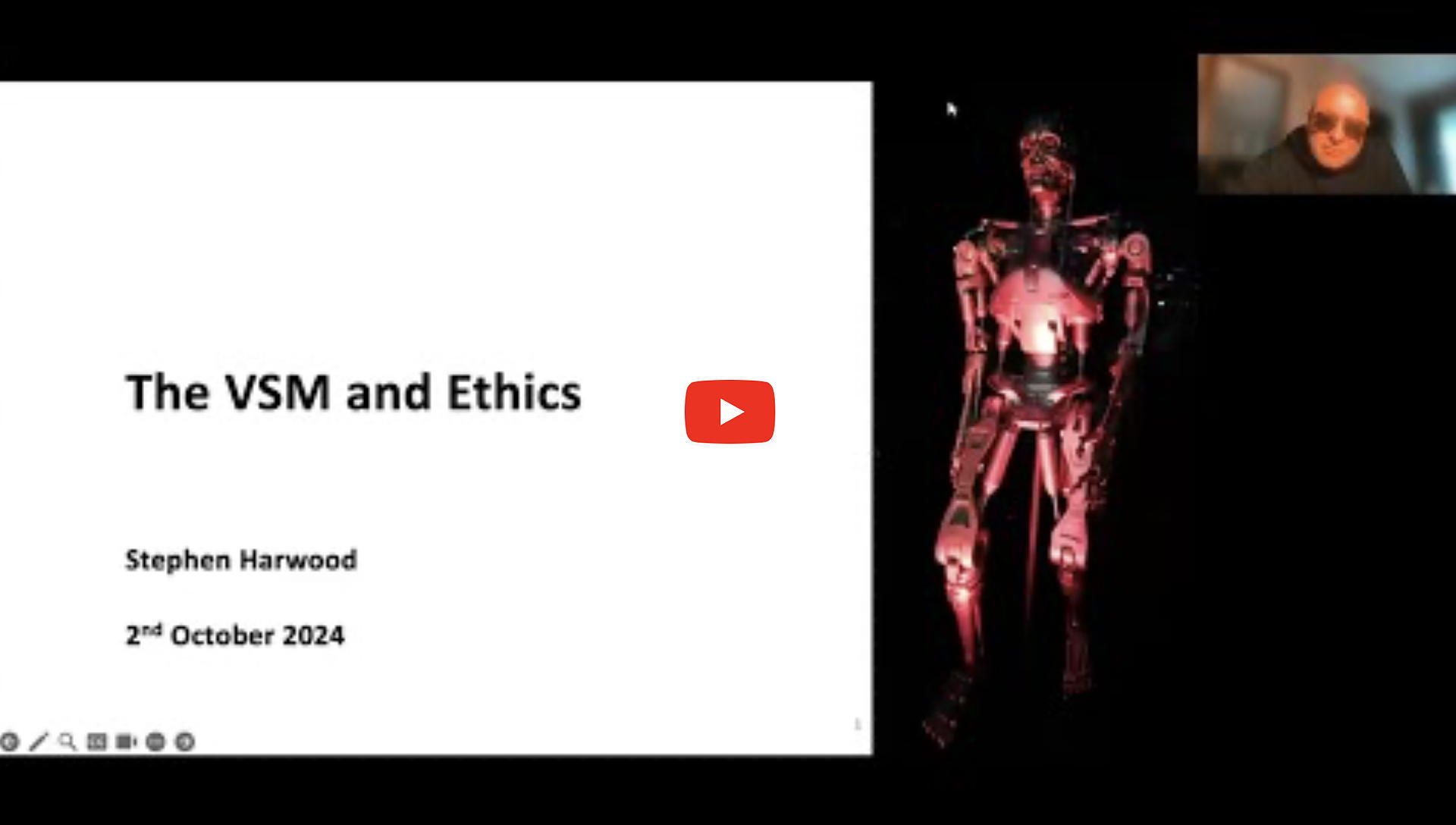
When reviewing a book about Autonomous Weapon Systems (AWS), I realised that whilst many people appeared to be fixated with the word ‘weapon’, the other two words were of more interest. What is the system and what is meant by autonomy. Indeed, these two other words suggested that an useful conceptual insight into explain the inherent complexity of AWS could be provided by the Viable System Model (VSM). However, another element that is implicit in the concept of an AWS was revealed. This is the issue of ethics.
Indeed, when one examines technology, as the general form of AWS, it can be noted that technology is Janus-faced with it having both a good and a dark side, this highlighting the ethics domain. This has implications for the implementation of technology in general. Extending the notion of technology implementation as one form of managed change, these implications extend to how we handle change, especially change in complex situations. Consequently, when using the VIPLAN Methodology as an approach to manage change, the question arises about this ethical domain.
The VIPLAN Methodology is a heuristic approach, comprising six activities, for handling situational complexity. It has a learning element which can be viewed as relating to the epistemological domain of second order cybernetics. There is also the organisational element which shapes any learning (i.e. who is included and exclude), this constituting the cybernetics domain. It is proposed that ethics constitutes an ontological domain, on the basis that the reality of what constitutes ethics is an ontological issue.
However, the notion of ontological cybernetics has already been raised by Gunther (1962), Turchin (1993), Galison (1994), Maturana (1988) and more recently Espejo & Lepskiy (2020). Thus, the notion of ontological cybernetics needs be considered relative to these other interpretations.
The aim of this talk is to propose that that when using the VIPLAN Methodology to deal with problem situations, especially those characterise wicked – messy problematic situations, there are three domains that ought to be recognised, the cybernetic, epistemological and ontological. This is especially important in a multi-cultural society where Western values need not be shared. It forces attention upon the morals and beliefs that underpin thoughts, decisions and judgements.
Speaker Bio

Stephen Harwood has experienced a number of lives, the latest being his recent appointment as a lecturer in the Dept of Space & Climate Physics, UCL.
His former life include the roles of geophysicist, writer, educator, change agent, entrepreneur and director, with experience spanning the coal-oil, electronics and tourism industries.
In 2010 he was awarded his doctorate from the University of Edinburgh for his study of how hoteliers ‘domesticated’ online technologies. His research interests lie at the intersection of sustainability, technology and cybersystemics, with a growing portfolio of publications that span a range of topics which include technology futures, autonomous weapon systems, ERP implementation, makerspaces, sustainability and cybersystemics.
First exposed to the VSM and the VIPLAN Methodology by Raul Espejo in the mid-1980s, this has emerged as a prominent area of his research over the last decade.
